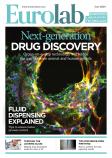Insilico Biotechnology has launched a new product, the Insilico Designer for Digital-Twin-based Design of Experiments (DoE). The Insilico Designer is used to develop an experimental design for bioreactor runs that reduces the experimental burden while resulting in information-rich data that is optimized for machine learning applications.
As machine learning is being adopted widely in bioprocess development, the quality of data obtained from training experiments becomes critical for achieving high predictivity of machine-learning applications. While traditional methods such as statistical DoE rely on prior knowledge for designing factorial experiments, the Insilico Designer is able to identify the combinations of factors and their levels that lead to the richest information in the data. The Insilico Designer uses a virtual bioprocess model, the Insilico Digital Twin, to design the minimum number of experiments required to achieve a desired predictive accuracy. As part of the Insilico Technology Platform, the Insilico Designer minimizes the experimental burden while ensuring that quality predictions are achieved from machine learning applications.
Klaus Mauch, the CEO of Insilico, says: "We realized very early on, that to achieve good quality predictions from machine learning applications such as the Insilico Trainer for training Digital Twins, it is imperative to use good quality data. However, the type of data usually generated from conventional Design of Experiments is only suitable for statistical or manual interpretations. In order to capture the higher-order interactions between design factors for training machine learning models, we need to use a model itself to design those experiments. Thus, the Designer was developed to design a minimum number of experiments that will achieve the required predictive accuracy from machine learning applications."








